Founder- Marilyn Morales Shares Inspiring Story on the Power of Becoming a Donor
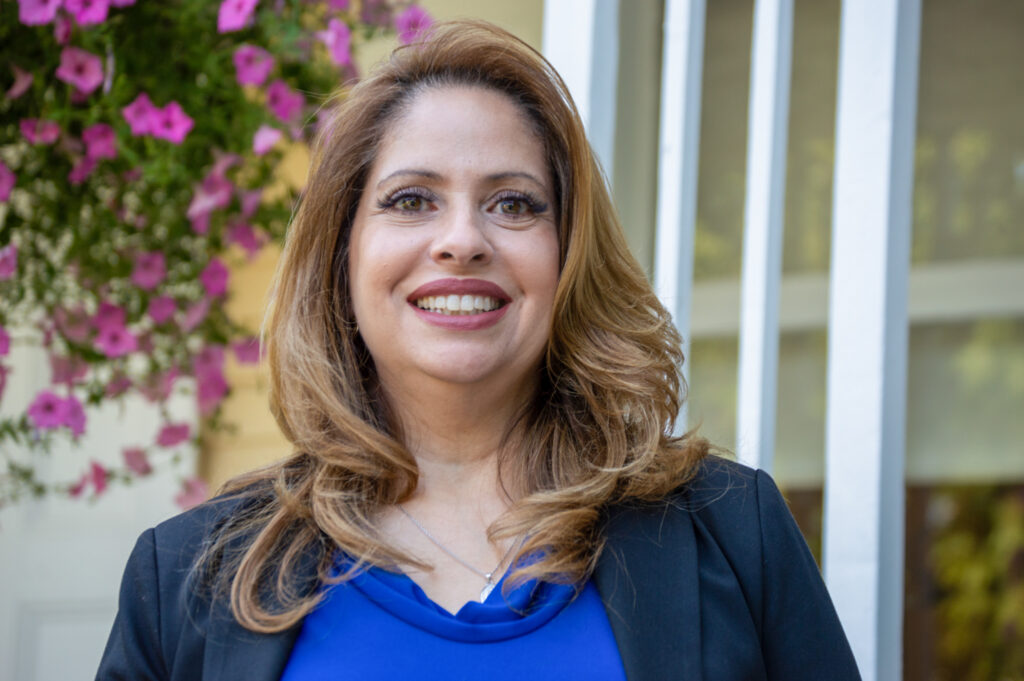
Maple Shade, NJ – One of the strongest forces in the world is a mother’s love for her children. The nurturing and love that a mother is prepared to give is abundant. Unfortunately, there are times when a mother is not affording the opportunity to express all her love to her child because of the loss of life. This was the case for Marilyn Morales who lost her daughter Isabella “Izzy” to a rare leukemia.
Marilyn now takes that love for her daughter and makes it her mission to help people suffering with cancer through her foundation Izzy’s Legacy Inc. This organization helps register donors to the Be The Match Registry and National Bone Marrow & Stem Cell Registries. Additionally, Izzy’s Legacy Inc helps find monies to support people going through a cancer battle.
In an exclusive interview with the nation’s faith-based and professional newspaper for winners, Anointed News Journal, Marilyn Morales shares a touching story of how her daughter was able to find a donor match, but how scarce it is for minorities to be able to find donor matches on these registries.
Collins II:
Who is Marilyn Morales?
Morales:
So Marilyn Morales has been a nurse for over 30 years. I became a nurse at the age of 17 in New York City, attending a specialized high school for the health professions. I obtained my license as a practical nurse at that young age. I consider myself a healer, not only for the physical body but also for the spirit and soul. Therefore, I am a holistic board-certified nurse as well, which I achieved in 2011. I pursued this certification because I firmly believe in the holistic approach, recognizing that a person is not just a physical entity. You have your body, mind, and spirit, with the spirit being of utmost importance. I believe that illness originates in the spirit before manifesting in the body. . The factors that affect your spirit are the ones that can eventually make you ill. Constant worrying and neglecting self-care due to such worries will eventually impact your physical well-being. By addressing the root of illness in the spirit, we can truly bring about change. That’s the core focus of holistic nursing.
Collins II:
You were born and raised in New York City?
Morales:
Yes, I was born and raised in Brooklyn, New York. Specifically, I grew up in the Marcy projects. If you Google its location, you’ll see that it has gained some notoriety because Jay-Z was also raised there.
Yeah, so Jay-Z actually mentions the McDonald’s that I used to go to in one of his songs, and he talks about the neighborhood. That’s exactly where I was raised, in that kind of environment. My parents got married in Puerto Rico and immediately moved to New York to build a family and seek better opportunities. They initially settled in the Bronx and then moved to Brooklyn shortly before I was born.
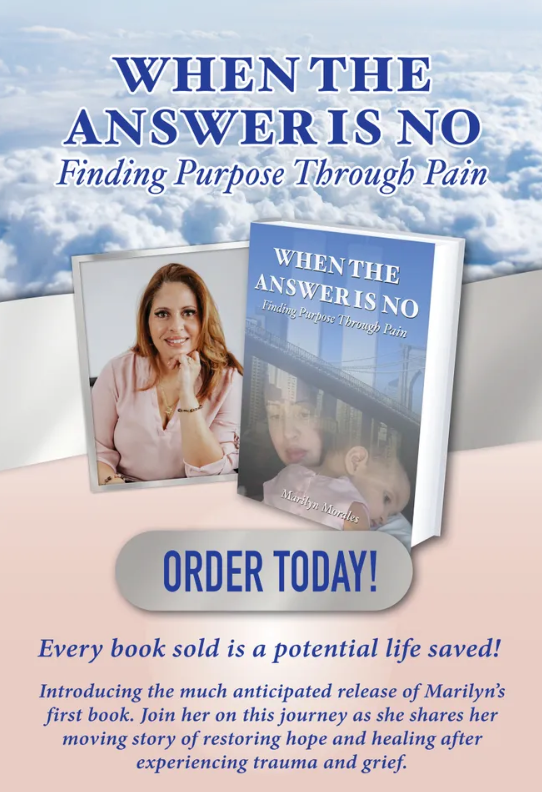
Growing up in that environment, it’s interesting because I never knew we were poor. I wasn’t aware of the difference between being Latino and being black, as Puerto Ricans come in various shades and colors, including within my own family. We were all different colors, so why would we be any different? We were all the same, all related, you know? My parents never emphasized those distinctions. Our neighbors, who came from diverse backgrounds; they were all a part of our community.
Let me tell you, the building I grew up in was home to some of the worst criminals, people involved in violence and crime — but their parents were friends with my parents. They were our neighbors. And I remember walking with my parents, going to church or wherever, and these guys, whom I should have been afraid of, were calling my dad “pops” and my mom “moms”. They would open doors for them. If they said, “Hey pops, I need a dollar,” my dad would give them whatever they needed. Or “Papi,” which is Spanish. They would say, “Hey, I need this or that,” and I would see my dad doing it, or my mom giving furniture to their moms, whatever they needed. And for me, that was normal, you know? We’re all in this together.
I didn’t know that those guys, later on, I found out, were involved in killing people. But whenever they saw us, they’d warn other people, “Leave those guys alone. Don’t bother those kids because they’re under our protection.” So we were shielded from a lot of things because of that, because of the kindness of my parents. They taught us that we are no better than anybody else. I never heard that we were better than anyone, so no one else was better than us either.
Collins II:
It seems like you learned a lot of good morals and gained different perspectives on life that were beneficial. But I’m curious, when did you realize that you wanted to strive for success and improve your life?
Morales:
I was never told I couldn’t strive for success. Even as a child, especially by my mother, who played a significant role in our upbringing. While my dad worked night shifts and slept during the day, my mother always emphasized the importance of education to us. She made sure we didn’t roam the streets aimlessly. Instead, she enrolled us in church programs and encouraged my brothers’ musical interests by putting them in music classes. She made sacrifices that we didn’t fully appreciate until we became adults, all to ensure our focus on education and involvement in after-school programs.
She especially emphasized to me, as a woman, the importance of being self-sufficient and never having to rely on someone else. She would say, “You don’t know where life will take you. You don’t know if you’ll have a husband who will stick around. So you need to be able to support yourself and your family, always.” So when I developed an interest in nursing or medicine and demonstrated academic aptitude, consistently making the honor roll, my mother encouraged and supported my pursuit. There was never a “you can’t” mentality. She facilitated that.
So I always knew that I was meant to do better than them. I didn’t want to always live in that environment. I wanted to have something of my own. And this is how I was going to achieve that. I was just raised with that mindset. I have to say I was truly blessed with the parents I had.
I always say I wasn’t born resilient. When people talk about the things I’ve been through in my life, like the loss of my daughter, my experience working as a nurse in Manhattan during the World Trade Center
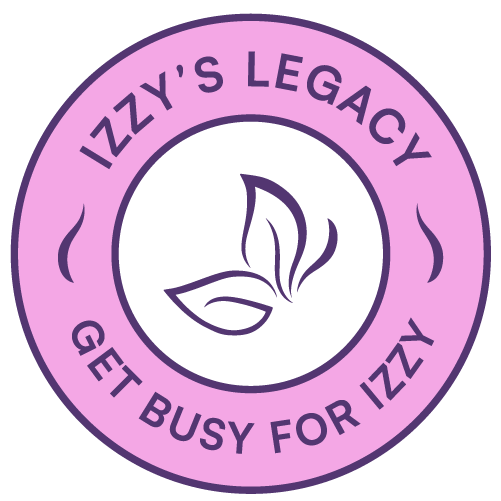
attack, seeing and assisting with everything, going into Ground Zero to help, and overcoming the PTSD I suffered after witnessing all of that, people would say, “You’re a strong woman.” But I don’t really like that term “strength” because it implies that someone going through the same things I did and not responding the same way is somehow weak. But they’re not weak. They may not have had the resources or support system that I had to deal with the stress. These experiences can bring anyone to their knees. The loss of a child makes you question everything you’ve ever known. And another mother going through the same isn’t weak if she doesn’t come out the same way. She just doesn’t know how to get through it.
And that’s why I talk about what I talk about. That’s why I wrote the book that I wrote, “When the Answer is No: Finding Purpose Through Pain.” It’s about sometimes life hitting you hard and praying and hoping for a positive outcome to negative situations, but it feels like the universe and God are saying no. What do you do with that? I had dedicated my entire life to medicine, becoming a nurse. I started learning about nursing at 15. So my whole life was focused on medicine. I was raised as a Catholic, going to church and participating in organizations to strengthen my faith and receiving all my sacraments. I dedicated my life to God. But then I lost my child to an illness. So in my eyes, both God and medicine had failed me. What do I do with that? How do I come back from that?
Collins II:
When I met you at the Author Millionaire Academy event, that was when you were releasing that book, right?
Morales:
Yes, that’s correct. It was during that event.
Collins II:
And your book is tied to your daughter, Isabella, who passed away. Could you explain what happened with her health condition and how you turned that experience into a message to be shared?
Morales:
So, at the age of seven months old, Isabella was diagnosed with a rare leukemia called JMML (Juvenile Myelomonocytic Leukemia), a cancer that only affects babies and small children. The only treatment for this cancer, even to this day, is a bone marrow transplant. So she would have to undergo that. They could provide chemotherapy to keep it at bay and buy some time, but the ultimate treatment was the bone marrow transplant. As soon as they delivered this news to us at Children’s Hospital in Philadelphia, with our seven-month-old baby, they also mentioned that our two other children could be potential matches for her, which gave us hope for a positive outcome. Because if one of them was a match, it would decrease the likelihood of side effects from the transplant since it would be the same DNA. We were tested, and heartbreakingly, we were half matches, which meant we were not matches for her.
It had to be as close to a hundred percent as possible. So now, how do I find that? Where do I find that? They told us there’s a national registry we can search, similar to an organ transplant when you need a heart or a lung. Your bone marrow and immune system are also considered organs. So we got on a list, hoping to find a match for the transplant. But they also informed us that there weren’t many Hispanics on that registry. There was a high possibility that we might not find a match there, and our little girl was running out of time. We wanted to get her to two years old before needing the transplant. So we thought we had time until her blood work started showing aggressive changes. The person from the
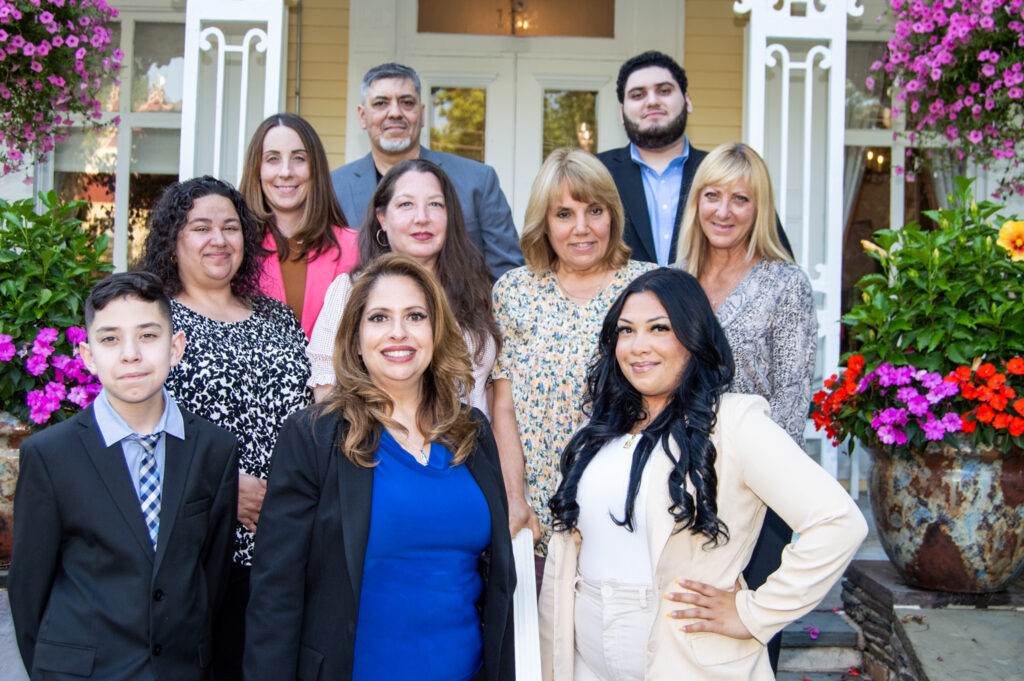
National Marrow Donor Program who was assisting me, Yvette, said, “We need to get you on television, in newspapers. We need to start organizing drives because we may not find a match here. We have to act quickly.” And we did. She never shared with me at that time, percentages and I think on purpose so that I wouldn’t lose hope. I know today, after so many years and all the efforts of people, that a Hispanic person has a 48% chance of finding their match on that registry in comparison to if you are white Caucasian, you have a 79% chance of finding that on there. And if you’re black, you have a 29% chance today. And Yvette, the person that was helping me was African American. And she lost her son to a cancer and he needed a bone marrow transplant and he didn’t find it and passed away, which is why she was doing that work. She was like, we didn’t find ours. So, her whole mission was finding them for other people.
We started organizing drives. Fortunately, and this is where God’s hand was evident, Isabella found her match. Several potential matches were found for her. There were about four people who could have been her match. Again, this is all voluntary. So they contacted these individuals and asked if they were willing to undergo additional testing and donate for her. Only two of them agreed to proceed with the testing, and ultimately, only one of them was a match close enough. And this person was very responsive and committed to the process of donation for her. As a nurse, I collected all the testing information done for her. I wanted to understand everything that was happening. I requested copies of the results, and back then, you could enter them into a database to see how many matches you had out there. You can’t do that anymore, but back then, it would just show you the number, not who the matches were. I entered Isabella’s results, my husband’s, mine, and our other two children. There were no matches for us. We had no matches. My son had a potential quarter match, but that was it. When I saw that, I called my husband and said, “Oh my God, Isabella was the only one out of our three children who had a chance to fight this. If it had been one of the other two or me, there would be no matches for us.” I told him that regardless of what happens with her, we need to continue raising awareness because there are people out there with no matches, just because of their ethnic background. Just because of the color of their skin and their DNA. It’s crazy to me.
So we started small-scale efforts and now my oldest daughter, who is 25 years old, works for Be The Match, the organization that helps people find their match. She is the one who helped me back then. She dedicated her life to honoring her sister and helping families like ours. She shared with me recently about some patients she had difficulty finding matches for, including an African American teenage boy and an 11-year-old Hispanic girl. And then there were two Caucasian girls she was looking for matches for as well. The most heartbreaking thing she told me was that the little Hispanic girl’s mother was crying to my daughter, asking why nobody showed up to her drives. They held drives to bring in volunteer donors. About 20 people showed up for her drive. But for the other two twin girls who had the same leukemia as my daughter, they had a drive and a thousand people showed up in person. A thousand people joined online and countless more were joining when they heard the story and saw it the newspaper. So thousands of people for these two little girls, yet the Hispanic one only got 20. And the mother, she told me that story and I just started crying and I’m like, oh my God, I know how that feels. And I’m like, we’ve got to do better. And at that moment I said to my daughter, I’m going to do something different. I don’t know what it is, but I’m going to do something so that we can have a different outcome. I need to step this up.
And I was trying to figure out what that something was. And then the idea of the book came to me. I realized I could share my own experiences and provide tools and tips for dealing with stress, loss, and
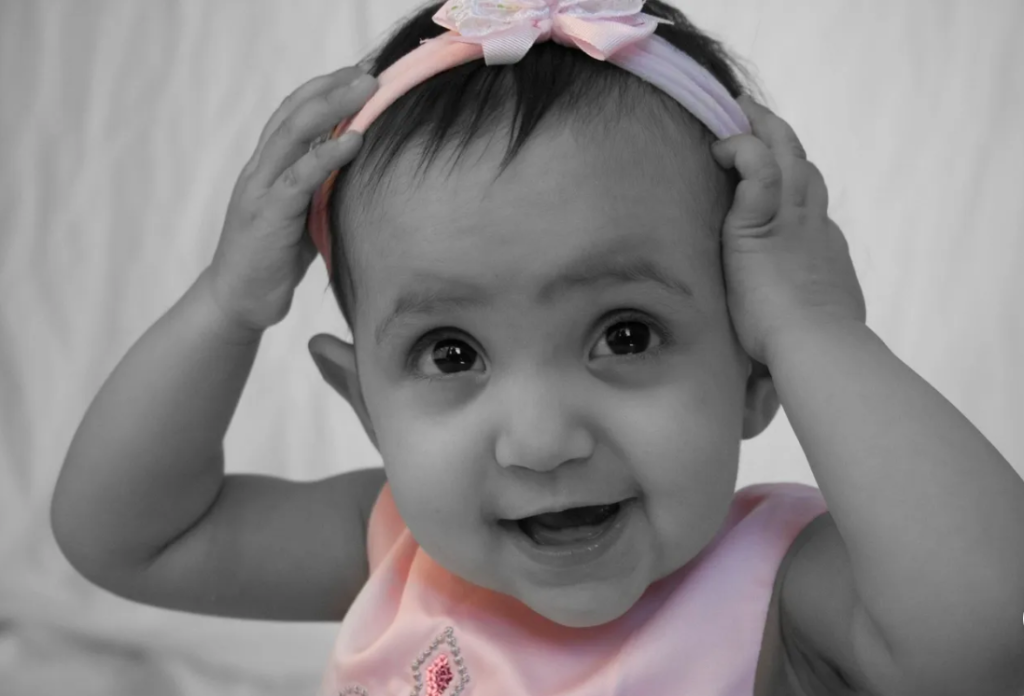
anxiety. I could also share the story of the percentage disparities and use the funds from the book to create a nonprofit organization. The goal would be to bring more education where it’s needed. While there is education available in Spanish and English, and organizations like Be The Match do a fantastic job of outreach, I found that when I volunteered with my daughter, there was still a lack of understanding. People didn’t know how to join the registry. They had misconceptions about taking blood or blood types. There’s a lot of misinformation and myths associated with DNA and a mistrust of the medical community, which is understandable given our history. So as a nurse who can speak medical terms, and as a Hispanic who can connect with them culturally, and most importantly, as a mother who has gone through the process, I can speak to them from a different perspective. I can explain that nothing is done with their DNA and that our people are dying because we lack the education and trust to know that joining the registry is a way to save lives without having to pass away like with other organ donations. It’s simple and easy.
Collins II:
When I saw you a couple of weeks ago, you explained the national registry, I realized that I didn’t even know about it, despite being college educated and always seeking knowledge. Can you explain what the national registry is and what it does for someone who has never heard of it before?
Morales:
The national registry is called the National Marrow Donor Program, also known as Be The Match. They focus on over 70 blood disorders and conditions that can be treated with a bone marrow transplant. Cancer is one of the most well-known reasons for needing a transplant, as lives can be lost without it. But for communities like Hispanics, Latinos, and African Americans, sickle cell anemia can also be cured with a bone marrow transplant. It’s a debilitating condition that can be life-threatening, and sometimes a transplant is the only option after other treatments fail. The purpose of the registry is to have people volunteer and join. It involves a simple cheek swab, and the information is processed in a laboratory. When someone is seeking a match for their condition, they are paired with someone in the registry who could potentially be their donor.
So, that’s basically what they do. They have drives all over the country to encourage people to volunteer for the registry and educate them about what it means to be on it. When you receive a call, they guide and support you throughout the process. They assist both the person searching for a donor and the person who will be donating, explaining what it’s like to donate. In the past, bone marrow donation involved a procedure where they had to extract the spongy material from your hip bone under anesthesia. However, in 90% of cases today, it’s as simple as giving blood. You remain awake and alert, spending a couple of hours in the hospital with a nurse. They extract the necessary stem cells from your blood via your arm and return the rest to you. It’s similar to donating plasma or giving blood. If you’ve ever had that kind of donation before, like donating blood or plasma…
They take what they need and give you the rest back. In 90% of cases, that’s how it works now. That’s it. This entire process is covered by the recipient’s insurance. The person in need of the transplant pays for it. You might experience some downtime and feel tired afterwards, similar to feeling like you have the flu. But most people recover by the next day. So when you compare what happens to you with what the person on the other side is going through, it’s really nothing. It’s a simple process and procedure.
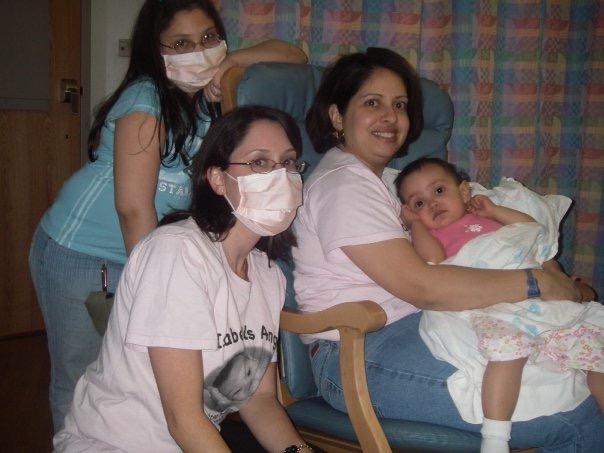
Collins II:
How can someone get more information or find the website for that?
Morales:
I’ve made it really easy. I have a one-stop shop. You can visit izzyslegacy.com; On the website, you can find information about me, my mission, and even purchase the book. The proceeds from book sales go to my nonprofit, Izzy’s Legacy Inc., which I recently established. The nonprofit’s website is izzyslegacyinc.org. Through this nonprofit, I have two main goals. Firstly, to continue educating minorities about the donation process and how simple it is. And secondly, to provide financial support to individuals going through a cancer journey, not just leukemia. We have an application process to offer financial assistance because we understand that cancer is expensive. So those are the two main objectives of the nonprofit.
On the website, izzyslegacy.com, on the Mission page, there is a section called “Save a Life” that provides a direct link to Be the Match. They have partnered with me to offer information, and you can apply for a kit directly from there. The kit will be delivered to your house, and you can complete the swab at home. There are certain criteria you need to meet, such as being between 18 and 40 years old and in good health. You’ll answer a few health-related questions, and if you qualify, you’ll be registered on the website. Once you return the kit and it’s processed, you’ll officially be on the registry. Personally, I joined the registry when I was 25, and I haven’t been called yet.
Collins II:
So your call to action would be for everyone to visit your website and join the registry, especially through that link. Your focus is on minorities because they are in greater need of matches.
Morales:
Absolutely. If you’re African American, the chances of finding a match are around 29%. And if you’re of mixed ethnicity, the statistics are even lower. There isn’t even a specific number for that yet. So considering how many people have mixed backgrounds these days, we need as many diverse donors as possible.
I always talk about Isabella’s donor, Mike Hensley, in my book, and I honor him every single day because he said yes. He joined the registry around the same time I started my search, hoping to be a match for a little girl with leukemia, not knowing it would be Isabella. He was actually a match for a little Puerto Rican girl in New Jersey. He is Caucasian, white. So when I finally connected with him a couple of years ago, I asked him the million-dollar question: How did you match my daughter? I was curious to know if he had any diversity in his background that allowed him to match us at a higher level than Isabella’s own parents. And he revealed that his paternal grandmother was Mexican. That small amount of diversity within him made him an even better match than her biological parents.
And it’s incredible because he ended up being a match for three people in total. It’s a testament to something greater, something divine. When we talk about where God was in all of this, I admit that I lost my faith and felt abandoned after dedicating my life to Him. But in reality, He was never absent. I just needed to open my eyes to the miracles unfolding around us. Mike’s case is a true miracle in itself. You don’t hear about it often. This man, with a little bit of diversity, not only matched Izzy, but three people.
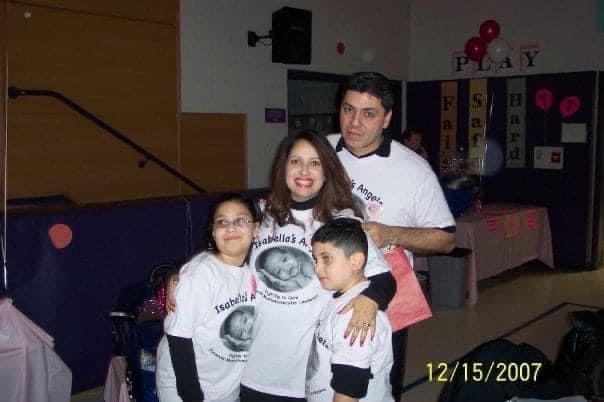
There was something special about this man. Number one, he’s a faithful man. Number two, he said yes to whatever God asked him to do. And he had enough diversity in him to know that we are all the same underneath this physical appearance. We’re all the same underneath.
Collins II:
So what’s next for Marilyn Morales?
Morales:
My nonprofit, Izzy’s Legacy. I do have another anthology book coming out this year called Love Never Ends; Honoring the Final Passage. I talk about my daughter and her final moments. She was on life support, making that decision to take her off and honoring that last stage of life. Not all of us are blessed to be there. And I was there for my mother. I had to make the same decision for my mother and my daughter. I was honored to be there, number one for my mother, for the last breath of the woman that welcomed my first. And for my daughter, who I welcomed first. I was honored to be there and honor their lives that way. And I think it’s a taboo subject. So I’m writing this book together with Julia Gandy. She works for hospice; we can share stories of that final moments of when you’re going from this life to the other, to meet God. And honoring that last stage of life and sharing those moments. So that’s next… And, my next book talks about where God was. I said the number one question I was asked during my journey was, how can you still believe in God after everything you’ve been through. I’m about to answer that question. I’m going to show you where He was through every step of the way.
Collins II:
You also mentioned that you have a podcast. Can you talk a bit more about that?
Morales:
Certainly! My podcast is called “Unscripted with Marilyn Morales,” and it’s available on YouTube. It’s also on the Christian network, CTF TV, actually picked up my podcast after seeing the first episode. So now it’s also available on their platform.
Collins II:
Oh, wow. That’s great.
Morales:
Yeah, they saw the uniqueness of my message and thought it would resonate with their audience as well. My intention with the podcast is to talk about real-life hardships and challenges because being a faithful person doesn’t mean that your life is easy. It just means that you don’t have to go through it alone. So I share those difficult moments, how I got through them, and I also bring attention to the mission of the registry, introducing people to Be The Match and showing them how easy it is to join. The podcast is another platform I chose to reach more people. Sometimes you have to wait for someone to invite you to speak, but I didn’t want to wait for that. I decided to create my own stage, not just for myself, but for people who wouldn’t normally have an opportunity. We may not be celebrities, but we’re good people who want to make a difference in this world. Let’s give ourselves a stage and share our stories of triumph, adversity, and how we overcame them. Let’s share that with the world.
Collins II:
In conclusion, what would you like to say to the readers of the Anointed News Journal?
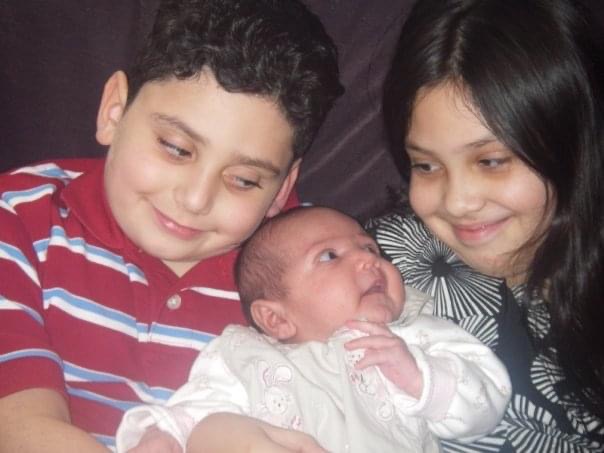
Morales:
Firstly, I want to encourage the readers to never lose faith, regardless of their circumstances. God is always there, we leave Him; He never leaves us. Look for the everyday miracles in your life. Each day is a miracle, and God is present in them. Hold on to Him. That’s the message I want to convey to the readers. And secondly, I urge them to join the registry.
You can find me on various social media platforms. You can connect with me on Facebook, LinkedIn, and Instagram. On Instagram, my handle is @author_morales. If you prefer to email me, you can do so through the contact information on the Izzy’s Legacy website. That website, izzyslegacy.com, is a one-stop shop where you can find all the information and also reach out to me. However, Facebook is the best way to connect with me at Marilyn Morales.
And don’t forget to subscribe to “Unscripted with Marilyn Morales” on YouTube. You can find me by searching for “Unscripted with Marilyn Morales”.
Lastly, I’m having my first gala fundraiser on September 16th. Isabella would have turned 16 this year. So as a mother, I want to honor her 16th birthday. It’s a big deal. She would have turned 16 in March. But I declared this year as the “Year of Isabella.” Everything I’ve done since January has been dedicated to her and the mission. So I established the nonprofit, wrote the book, and started speaking to share the message about the importance of joining the registry. And on September 16th, I will be hosting the first gala from 4 to 9 PM at the Unitarian Church in Cherry Hill.
Collins II:
Thank you, Marilyn, for your time.
Morales:
Thank you. It was my pleasure.
The Anointed News Journal urges everyone to visit izzyslegacy.com and seriously consider signing up for the registry. You could very well save someone’s life, and it doesn’t require much from you to do it. Just the willingness to think about someone who needs you, because you may be their perfect match.
ANJ’s Top Takeaways from Izzy’s Legacy:
“A Hispanic person has a 48% chance of finding their match on that registry in comparison to if you are white Caucasian, you have a 79% chance of finding that on there. And if you’re Black, you have a 29% chance today. And if you’re of Mixed ethnicity, the statistics are even lower.”
The sign up process involves a simple cheek swab, and the information is processed in a laboratory. The kit will be delivered to your house, and you can complete the swab at home.
When someone is seeking a match for their condition, they are paired with someone in the registry who could potentially be their donor.
The National Marrow Donor Program, also known as Be The Match, focuses on over 70 blood disorders and conditions that can be treated with a bone marrow transplant. Cancer is one of the most well-known reasons for needing a transplant, as lives can be lost without it.
For communities like Hispanics, Latinos, and African Americans, sickle cell anemia can also be cured with a bone marrow transplant, when other treatments do not work.
In 90% of cases today, if you are called to be a donor, it’s as simple as giving blood. You remain awake and alert, spending a couple of hours in the hospital with a nurse.
Sites to check out:
Izzyslegacy.com
Bethematch.org
By Christopher Collins II

Recent Comments